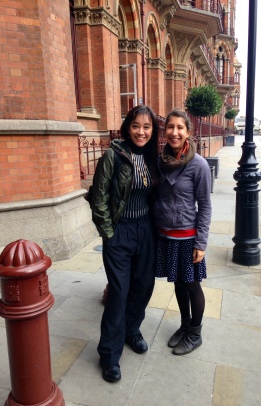Recently I have been writing proposals to continue fieldwork with pangolins in Vietnam with Save Vietnam’s Wildlife (SVW). Throughout this process I am often asked by donors, “but what about demand reduction?” This is a valid point, SVW have included in their plans a community engagement aspect around field sites that we are working at and have just conducted a rapid survey in Hanoi of Traditional Chinese Medicine (TCM) shops and restaurants.

However, demand reduction needs to be tackled at several levels. For example Education for Nature Vietnam (http://envietnam.org/) have the capacity to produce Public Service Announcements in major cities across Vietnam and larger international organisations can encourage national and international celebrities to drive an attitudinal change. By all working together and tackling different audiences we can really begin to make a difference.
However, I also believe that there needs to be an increase in communication between organisations and to bridge the gap between on the ground NGOs, celebrities and large corporations (and am on a bit of a personal mission to try and facilitate this communication). Since starting at Investec Asset Management I have started to see the role large corporations can have in conservation and today I became even more aware of the power of celebrity endorsement.
This morning I met Sharon Kwok, an Asian celebrity, who has worked tirelessly to reduce demand for shark fin, ivory and rhino horn across Hong Kong and in China. As a passionate conservationist she was already convinced that things need to be done to save the pangolin however, she also provided an excellent insight into the psyche of the Chinese and the best way to get your message across.
One of the main issues is that so many people don’t know what a pangolin is and for this we need to recruit ambassadors. The more Sharon talks about pangolin publicly, the more people in range countries across Asia will become aware. We can also use her statement supporting pangolin to get the attention of important embassies as well as spread word among other celebrity friends.
This is the start of a great opportunity, but it needs longevity to really make a change and we are busy making plans for our next steps.



